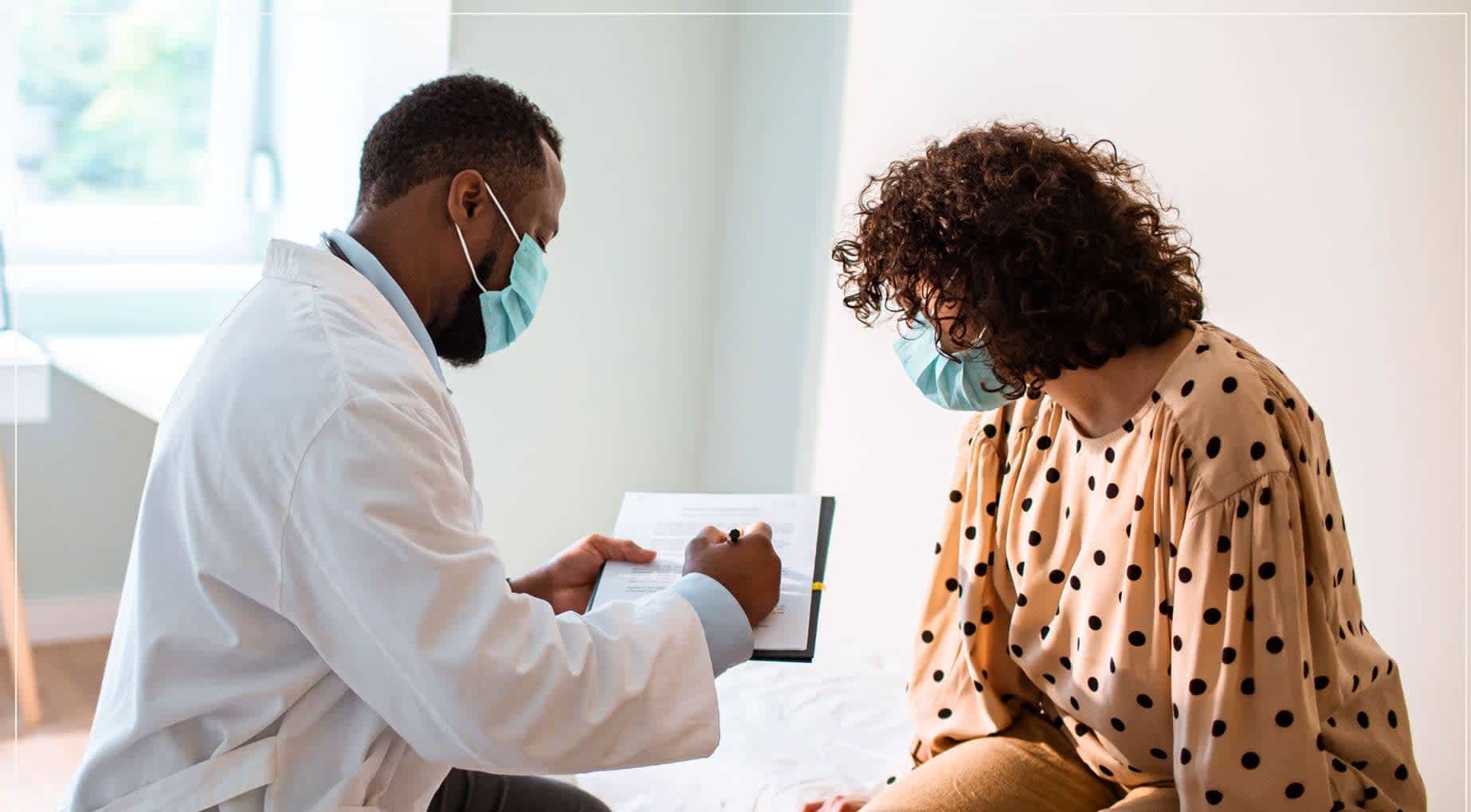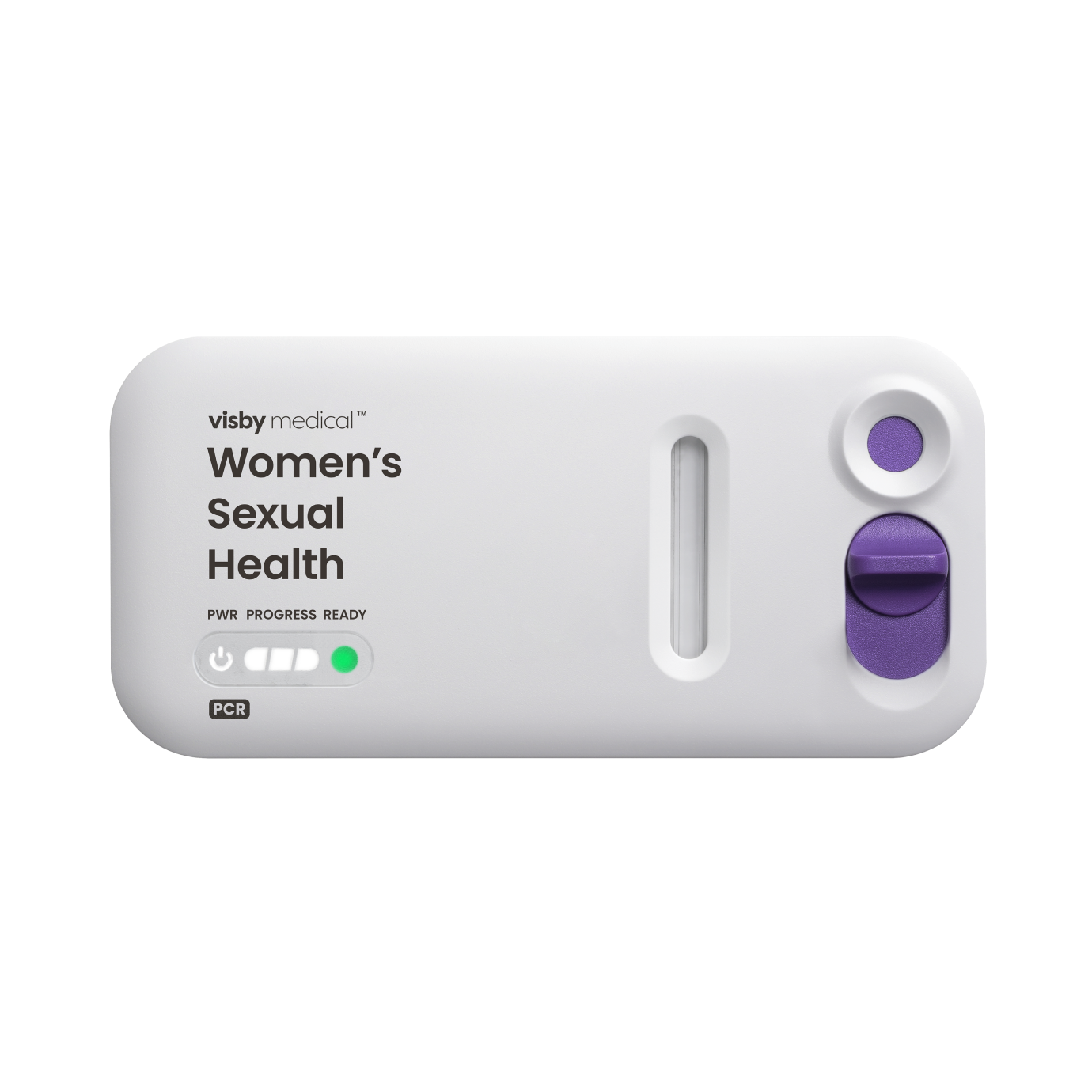
Medically reviewed on November 22, 2022 by Jordan Stachel, M.S., RDN, CPT. To give you technically accurate, evidence-based information, content published on the Everlywell blog is reviewed by credentialed professionals with expertise in medical and bioscience fields.
Table of contents
- What is gonorrhea?
- What to do if you think you have gonorrhea
- 4 common gonorrhea treatment options
- How to treat gonorrhea if you have an allergy to antibiotics
- What if the treatment doesn’t work?
- Everlywell: take preventive action today
- Related content
As medicine advances and we grow more knowledgeable about sexually transmitted infections (STIs), so do the treatment options available to patients. Today, gonorrhea is one of a handful of curable STIs and when properly diagnosed is possible to recover [1].
Whether you’ve recently received a positive result from a gonorrhea test or you suspect that you may be showing symptoms, this guide is for you. We’ll break down a few basics of gonorrhea and explain how healthcare providers treat gonorrhea today—no matter your circumstances.
What is gonorrhea?
Gonorrhea is a sexually transmitted bacterial infection. It typically only affects areas of your body that came into contact with an infected sexual partner [2].
One of the most difficult parts of treating gonorrhea is it can be very difficult to spot in the first place since it often presents with no symptoms. So, how long can you have gonorrhea without knowing? The answer depends —which means getting regularly tested is usually the best way to know if you have it [1].
Types of gonorrhea infections
When gonorrhea does present with symptoms, the location of the infection and your anatomy largely determine which signs you’ll see first.
Vaginal infections may occur with the following symptoms (these may take several weeks after exposure to present themselves) [1]:
- A burning sensation or pain while urinating
- More vaginal discharge than usual
- Bleeding between menstrual periods
Infections in the penis are typically easier to spot than vaginal infections and may come with [1]:
- Pain or a burning sensation while urinating
- Discharge from the penis (usually yellow, green, or white in color)
- Swollen or painful testicles (this is a more uncommon symptom, but it’s still one to watch for)
Rectal infections—those affecting the anus—are typically symptomatic. People who contract the infection from anal sex may experience one or all of the following gonorrhea symptoms:
- Bleeding
- Painful bowel movements
- Itching
- Soreness
- Discharge
A less common type of gonorrhea infection is an oropharyngeal case (an infection in the mouth or throat). Oropharyngeal gonorrhea is typically asymptomatic, and it’s usually only possible to confirm infection with a lab test [3].
What to do if you think you have gonorrhea
If you’re experiencing any of the symptoms above—or if you discover that a recent sexual partner has a confirmed gonorrhea infection—you should take action as soon as possible.
Before pursuing treatment, that means you’ll need to:
- Get tested – These days, most people have two testing options: a urine test or a swab sampling [2]. Urine tests are the most common, and these days samples can be retrieved simply with an at-home test kit.
If you opt for a swab test, you’ll need to visit an urgent care facility, reproductive healthcare clinic, or your healthcare provider, who will take a sample from your suspected area of infection (generally the throat, cervix, urethra, or rectum).
- Tell your sexual partners – If you receive a positive test result for gonorrhea (or any other STI or STD), you should do your best to inform your recent sex partners. This is particularly important in the case of gonorrhea, given that testing is usually essential to prevent the spread and progression of infection cases.
Receiving a positive test result for gonorrhea can feel overwhelming, but it’s important to remember that this sexually transmitted infection is often highly treatable. The longer you wait to treat it, the higher your risk is of developing long-term effects of gonorrhea. Untreated gonorrhea has been known to lead to pelvic inflammatory disease, gonococcal endocarditis, Septic arthritis, and many others. Luckily, many people who receive a diagnosis can eventually reestablish their sexual wellness after proper treatment.
However, successfully treating gonorrhea starts with knowing what options are available to you in the first place.
4 common gonorrhea treatment options
When you need to recover from a gonorrhea infection, you can typically expect your healthcare provider to offer one of the following treatment options. The protocol your provider recommends will depend on your medical history, the site of the infection, and whether you're currently managing other STIs or STDs.
Ceftriaxone injection
If you have an uncomplicated gonorrhea infection in your urethra, cervix, pharynx, or rectum, your provider will likely prescribe (and perform) a 500mg ceftriaxone injection [4]. Ceftriaxone is a type of antibiotic that healthcare providers also use to treat [6]:
- Pelvic inflammatory disease (PID)
- Meningitis
- Other infections
There are a few important things to note about ceftriaxone injection treatments for gonorrhea [6]:
- Ceftriaxone is a cephalosporin drug—alert your provider if you have a known allergy
- The medication should completely eradicate the infection in 24 to 50 hours
- As an antibiotic, it’s critical that cephalosporin is administered appropriately to be effective and reduce your risk of antibiotic resistance
In some cases, your provider may also prescribe an oral antibiotic medication (we’ll discuss this approach in more detail in the next section).
Doxycycline
Even if you receive a typical ceftriaxone injection for a gonococcal infection, your provider may also prescribe an oral antibiotic called doxycycline [4].
Doxycycline is an antibiotic in the tetracycline antibiotics drug class [5]. It’s used to treat (or prevent) a variety of bacterial infections. However, there are several reasons why your provider might choose doxycycline (rather than a ceftriaxone injection):
- If a chlamydia infection hasn’t yet been ruled out with a lab test
- If you need a treatment that can help reduce inflammatory symptoms of gonorrhea
- If you have an aggressive case of gonorrhea that requires a more robust treatment protocol
A typical doxycycline dose for a gonorrhea infection is 200mg per day taken for seven days.
Gentamicin injection and azithromycin
If you have an allergy to cephalosporin drugs, or if ceftriaxone isn’t available, your healthcare provider may treat your cervical or urethral gonorrhea infection with a combination of two drugs [4]:
- A 240 mg gentamicin injection
- A 2g oral dose of azithromycin
Even if a chlamydia infection hasn’t been ruled out with a lab test, it is unlikely that your provider will also use doxycycline if you take the above treatment route.
It’s also important to note that the above combination of drugs hasn’t been tested for oropharyngeal or rectal gonorrhea infections in a clinical trial. So, if you have a gonorrhea infection in either of these areas, your provider may not take this route (even if you're allergic to cephalosporin drugs).
Cefixime
If an injection isn’t feasible, if ceftriaxone isn’t available, or if you’re allergic to gentamicin or azithromycin, your provider may opt for a one-time, 800 mg oral dose of cefixime [4].
However, it’s important to note that cefixime isn’t as effective as ceftriaxone (the primary drug used to treat gonorrhea). In clinical trials, ceftriaxone offered a rate exceeding over 99% effectiveness at treating gonorrhea, while cefixime was shown to be moderately less effective (97.5%).
Moreover, in clinical trials testing the efficacy of cefixime for treating oropharyngeal gonorrhea, this medication only showed a 92.3% cure rate.
How to treat gonorrhea if you have an allergy to antibiotics
If you have an allergy to cephalosporin drugs, your healthcare provider may choose a different treatment option, like a combination of gentamicin and azithromycin [4].
If you’re allergic to these drugs (and others commonly used for STI and STD treatments, like doxycycline), your treatment options are more limited. In some cases, if you have a history of only mild allergic reactions to a drug, your healthcare provider may still feel comfortable prescribing it to eradicate the infection.
A high-quality healthcare provider will discuss all of your treatment options thoroughly, and ultimately let you decide which avenue of treatment you want to pursue. Remember, if you’re unsatisfied with the options offered by one healthcare provider, you can always seek a second opinion.
What if the treatment doesn’t work?
The treatment methods for gonorrhea infections described above work most of the time. However, if you suspect that your gonorrhea infection hasn’t gone away after your treatment course is complete, you should contact your provider right away [4].
In the US, most cases of suspected “treatment failure” are actually re-infections of gonorrhea. if you have sex with someone with an active gonorrhea infection while you’re in the middle of a course of antibiotics to treat an existing infection, you run the risk of contracting a second infection.
If a re-infection is unlikely, and your provider determines that your first treatment wasn’t effective, they’ll likely take two steps:
- Complete another gonorrhea test using a different testing method (i.e., take a swab sample instead of a urine sample, if you used a urine test the first time)
- Collect samples of your treatment-resistant infection and contact an infectious disease specialist who will assess your case in-depth and determine additional treatment options
Everlywell: take preventive action today
Thanks to the knowledge we’ve gained in recent years, today’s medical experts know how to treat gonorrhea so that patients can make a recovery. But the first step in treating sexual health conditions is testing—and, with Everlywell, testing for STDs and STIs is finally convenient.
Whether you screen for individual infections or make comprehensive STI testing a part of your routine, Everlywell at-home Sexual Health Test kits make it easier than ever to know your status. Just retrieve a sample at home, send it to our CLIA-certified labs, and we’ll send you an easy-to-understand assessment (no clinic appointment necessary).
To learn more about your health and wellness, check out the complete line of Everlywell at-home tests now.
Related content
Can you get gonorrhea from kissing?
Gonorrhea long-term effects: what you need to know
How long can you have gonorrhea without knowing?
References
- Gonorrhea: Causes, symptoms, treatment & prevention. Cleveland Clinic. (n.d.). Retrieved November 7, 2022. URL
- Std facts - gonorrhea. Centers for Disease Control and Prevention. Published August 22, 2022. Accessed November 7, 2022. URL
- Gonorrhea | the clap. MedlinePlus. Accessed November 7, 2022. URL
- Gonococcal infections among adolescents and adults - STI treatment guidelines. Centers for Disease Control and Prevention. Published September 21, 2022. Accessed November 7, 2022. URL
- Gonococcal infections among adolescents and adults - STI treatment guidelines. Centers for Disease Control and Prevention. Published September 21, 2022. Accessed November 7, 2022. URL
- U.S. National Library of Medicine. (n.d.). Ceftriaxone Injection: Medlineplus Drug Information. MedlinePlus. Retrieved November 7, 2022. URL
Spotlight on
Featured content

86% of cancers aren't caught by recommended screenings. See what they're missing with a single blood draw.
Save $100 now
Explore Everlywell









